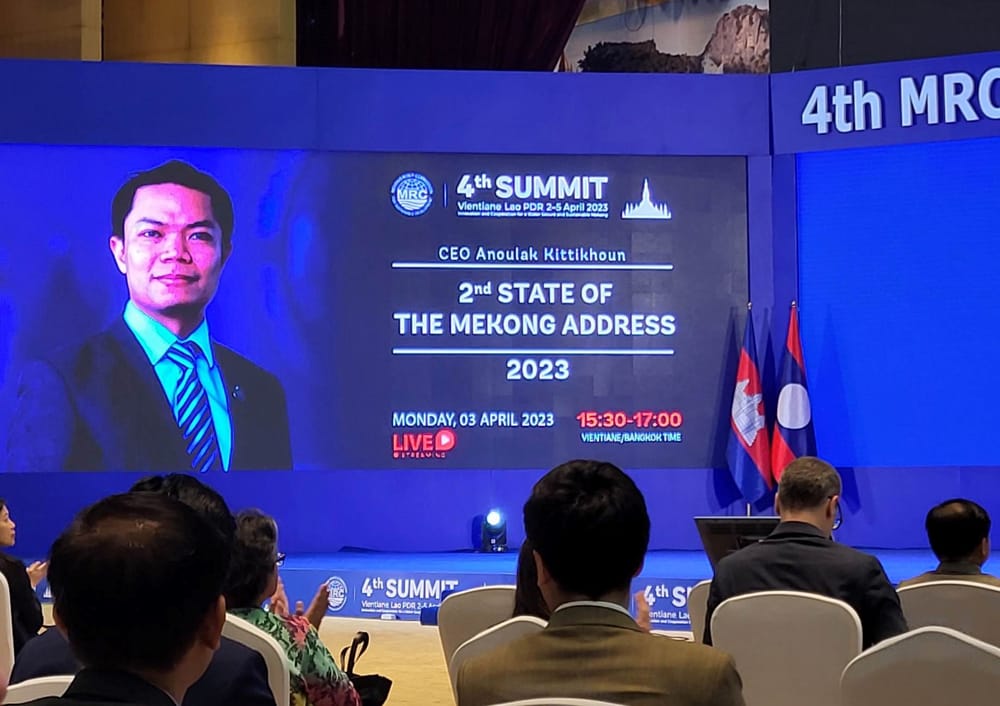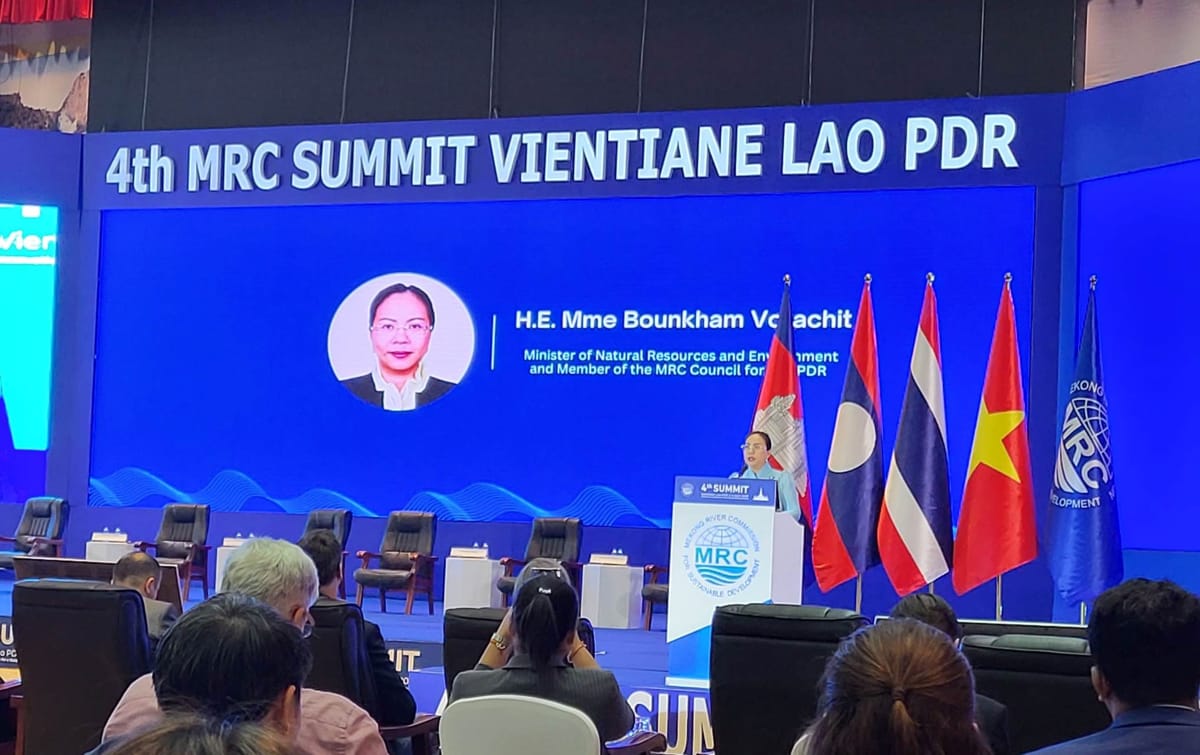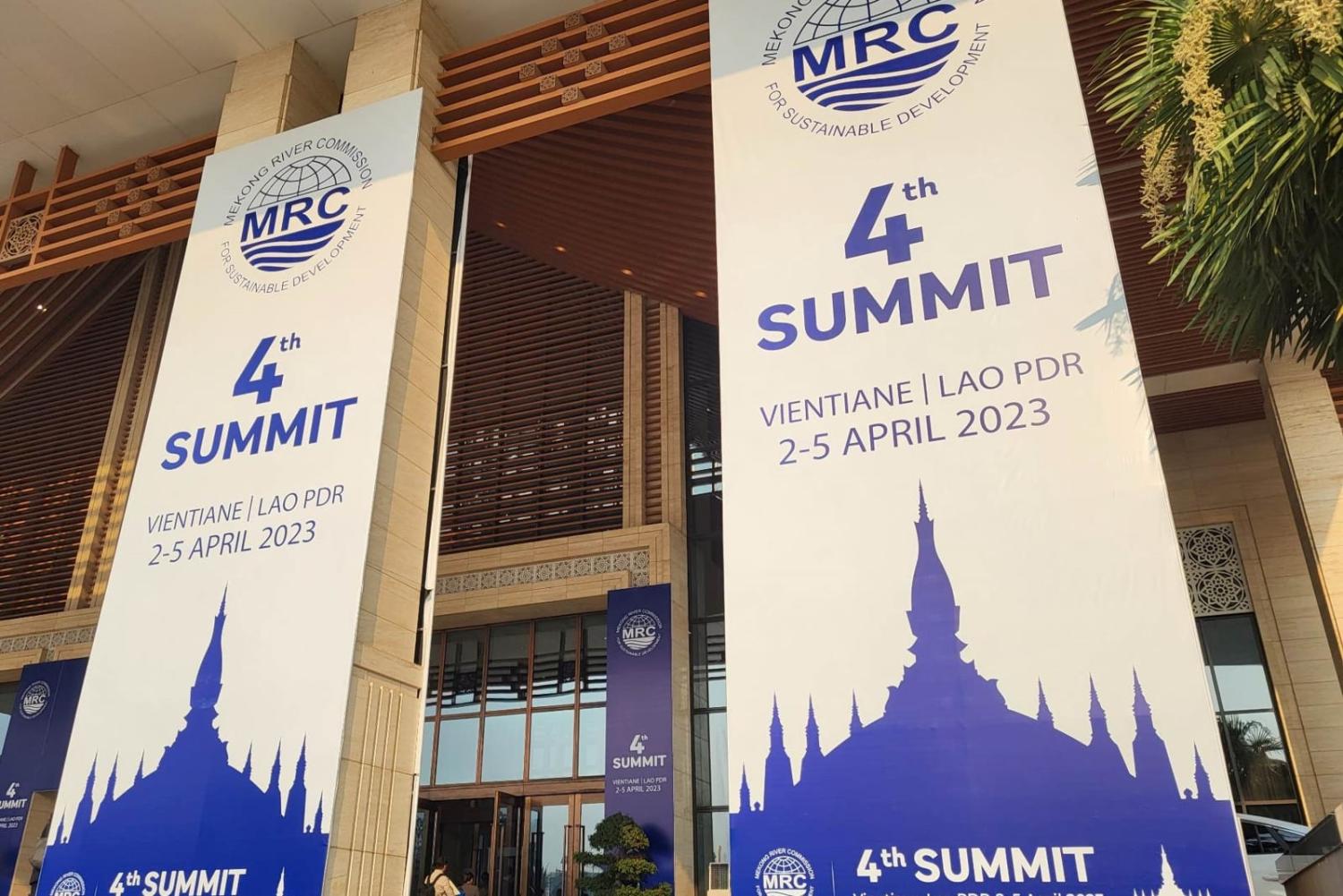Laos hosted a four-day Mekong River Commission leadership summit and conference last week, focusing on this vital waterway for Southeast Asia.
Australia has been engaged in the Mekong region for decades, including supporting the Mekong River Commission. This support has been multi-faceted through different programs and projects and was visible through Australian representation in Vientiane during the summit.
This was the fourth MRC summit, the last held five years ago in 2018. The latest talks focused on innovation and cooperation, a crucial concern as the Mekong region has faced growing challenges, including the steady increase in hydropower projects as a result of rapid economic development of the riparian states, including China, Thailand, Laos, Vietnam, Cambodia and Myanmar. Cheap, renewable energy is considered crucial to meet increasing electricity demands in the region, especially given volatile prices in international energy markets and concerns over carbon emissions.
Today, the Mekong is undergoing tremendous transformation linked to a changing flow regime, increased population and water use, and floods and droughts affecting the 65 million people that rely on the river system. The impact of climate change is visible through devastating droughts in the last few years, with downstream countries feeling the brunt, especially Vietnam’s rice fields and Cambodia’s fisheries.

The theme of the summit recognised what MRC CEO Anoulak Kittikhoun described as “significant opportunities to make development more optimal and sustainable, preserve key wetlands, watersheds and floodplains, and increase the resilience of our countries and communities”. An international conference preceding the formal summit saw more than 600 participants gathering in Vientiane – three times the number of attendees at the first summit in 2010 – with participants from all over the world representing governments, the private sector, academia and media as well as not-for profit organisations. It was a sign of immense good will for the health of the riverway, although providing some limitations as all events were in English language only.
The conference included various sub-sessions, for instance focusing on the value of water organised by the Australian Water Partnership, a gender lens on water challenges, and inputs by companies, including local brewery Beerlao. The Vientiane governor also emphasised that the value of water is not only its socio-economic importance, but also for traditions and the cultures of Laos and the region.
But the conference also heard alarming news about the state of the river. Kittikhoun spoke of not only a changing flow regime – with an average outflow of water in 2022 only half of that compared to 1995 – with impacts on the crucial dispersion of sediment, which has been reduced by 60 per cent in Phnom Penh alone. But he also warned of the proliferation of plastic waste, with microplastics found in 20 per cent of sampled fish in 2022.
On 5 April, leaders from Cambodia, Laos, Vietnam and the Secretary-General of the National Water Resources of Thailand issued the Vientiane Declaration to re-affirm a commitment to support development and operational decisions through improved use of technology, regional planning and coordinated operational management.
This declaration showcased a commitment to support the river system, but whether that translates into urgently needed innovation and collaboration is questionable. Such promises have been made before. Action now is key in addressing significant challenges in the Mekong River basin, which supports the livelihoods of the millions who live directly on its riverbanks and rely on the river for food, accommodation and employment, along with future generations.
Bounkham Vorachit, Lao Minister of Natural Resources and Environment, captured the need during her opening speech, stating, “business as usual is not enough, more needs to be done at all levels”.


